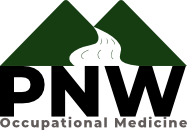Occupational medicine is a critical aspect of maintaining a healthy and productive workforce, yet many businesses in Richland overlook its importance. In this guide, we’ll explore the key elements of occupational medicine and how it can benefit your business.
What is Occupational Medicine?
Occupational medicine focuses on the physical and mental well-being of workers. It involves the prevention and treatment of work-related injuries and illnesses, ensuring employees are healthy and fit for their roles. This branch of medicine is not just about treating injuries after they occur; it’s proactive. Practitioners also design programs tailored to the specific needs of businesses, addressing everything from common workplace hazards to mental health challenges. This proactive approach helps companies maintain higher productivity and lower employee turnover rates.
In today’s fast-paced work environments, maintaining employee well-being is more challenging. Occupational medicine acts as the bridge between the workplace and healthcare, offering a range of services such as ergonomic assessments and stress management workshops. Health education plays a significant role as well, providing employees with the tools they need to manage their own health effectively. By integrating these practices into your business, you not only support employee health but create a more engaged and loyal workforce.
The Importance of Occupational Medicine for Businesses
Recognizing occupational medicine’s role in maintaining workplace health can lead to fewer accidents, less downtime, and ultimately, lower healthcare costs for businesses. Occupational health professionals assess potential risks and design strategies to mitigate them, directly contributing to a safer work environment. This kind of proactive health management can be particularly valuable in industries with inherently higher risks, such as construction or manufacturing.
It’s also essential to understand the mental health aspect of occupational medicine. As work-related stress and burnout become increasingly common, addressing mental well-being is crucial. Implementing employee assistance programs (EAPs) and wellness initiatives can help you support your workforce. Businesses that prioritize occupational medicine often see a return on investment through enhanced employee performance, reduced absenteeism, and higher job satisfaction levels.
Common Services in Occupational Medicine
From pre-employment screenings to drug testing and ergonomic assessments, occupational medicine services are designed to prevent injury and support ongoing health. Pre-employment screenings, for example, ensure that your potential hires are physically able to perform job-related tasks. This helps to match the right person to the right job, reducing the likelihood of injuries down the line.
Drug testing is another critical component, helping to maintain a safe and productive workplace. Although it might seem intrusive to some, these tests protect both the company and its employees by ensuring a substance-free work environment. Additionally, ergonomic assessments can significantly reduce the risk of musculoskeletal disorders among office workers, who often experience repetitive strain injuries from long hours at desks.
Implementing Occupational Medicine in Your Business
Steps to integrate occupational medicine into your business include working with local health providers, training staff, and creating comprehensive health programs. It’s beneficial to choose providers who offer tailored solutions, focusing on the specific needs of your industry. For instance, PNW Occupational Medicine offers L&I injury and claims management, DOT physicals, and minor injury services, all essential for maintaining a robust productivity level in your business L&I Injury and Claims.
Training is another crucial step, ensuring that staff understands how to recognize and prevent workplace hazards. Employee education programs can equip your team with the knowledge to manage stress, improve ergonomics, and maintain physical fitness. Creating a supportive environment that encourages open communication about health issues will also make your occupational medicine programs more effective.
Finally, implementing health programs that address both physical and mental health can greatly impact employee well-being. Initiatives like health screenings and wellness workshops not only identify potential health risks but also promote healthier lifestyle choices among employees. Collaborating with a reputable health provider like AnovaWorks ensures your programs are comprehensive and effective.
Local Resources for Richland Businesses
Richland offers several resources and medical professionals specializing in occupational health, which businesses can collaborate with to enhance workplace safety. Collaborating with local experts allows businesses to develop strategies tailored to their specific needs, be it through ergonomic evaluations or workplace wellness seminars. Businesses can also take advantage of specialized services like DOT physicals offered by PNW Occupational Medicine, ensuring that commercial drivers meet operational safety standards.
Services like on-job L&I minor injury management are particularly invaluable in ensuring quick and efficient recovery for employees, minimizing disruption to business operations. By partnering with experienced professionals, you can streamline the process of handling workplace injuries and claims, thereby maintaining a seamless workflow. Such partnerships enable businesses to focus more on their core activities while ensuring their workforce remains healthy and productive.
Embracing Occupational Medicine for a Healthier Business
Incorporating occupational medicine into your business strategy is an investment in your employees’ health and your organization’s success. By understanding its importance and implementing the right practices, businesses in Richland can enhance employee well-being, reduce costs, and improve productivity.

